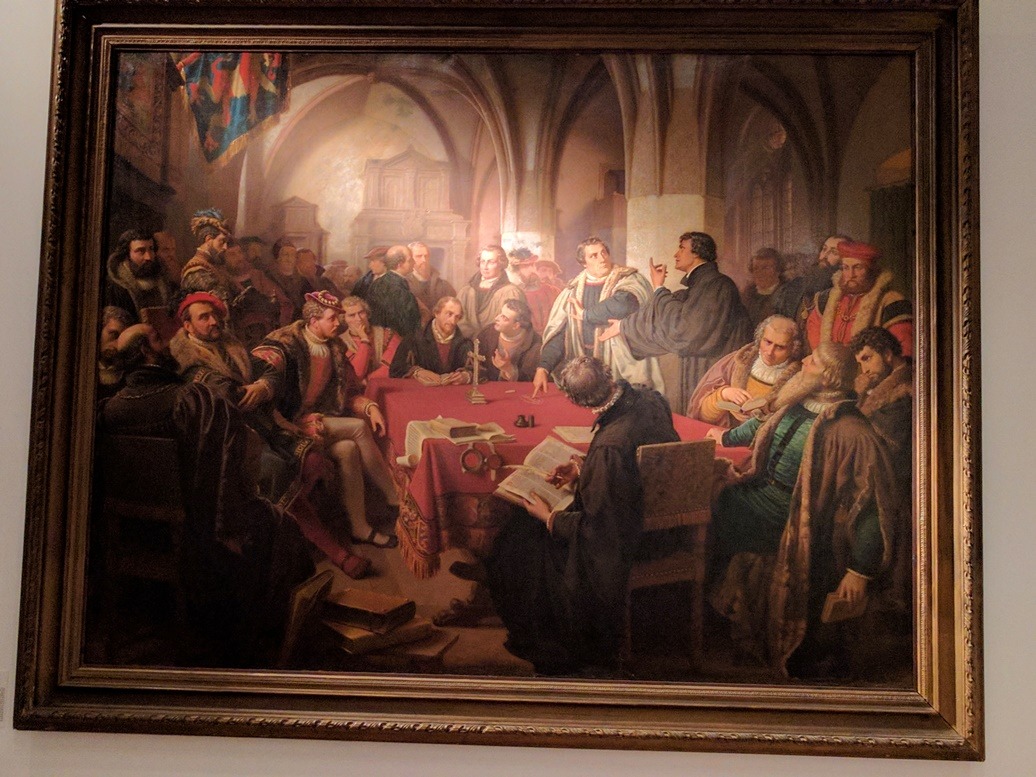

#MARBURG COLLOQUY AP EURO TRIAL#
Various writings and commentaries on witches from private citizens, Luther, Calvin, The Hammer of Witches, trial accounts, Grimmelshausen: Simplicius Simpliccissimus, Henry of Navarre: Edict of Nantes, Richelieu and the strengthening of the monarchy.Stages of the 30 Years War through to Westphalia.How important was religion as a cause of the 30 Years War?.Bartholomew’s Day Massacre, the War of Three Henrys and consequences (Edict of Nantes). Unit III: Wars of Religion & State building Queen Elizabeth: The Golden Speech / various points of legislation, Albuquerque: The Conquest of Malacca, Cortes: On the Conquest of Tenochtitlan, de Las Casas: The Tears of the Indians, Qianlong: Letter to the British Government, Various letters and diary excerpts re: Spanish Conquest of the Americas Commercial Revolution, joint stock companies, expansion of banking, bullion, subversion of guild laws, mercantilism.

Economic, technological and political causes for exploration.Unit II: Exploration and Commercial Revolution Peace of Augsburg and consequences for the Holy Roman EmpireĬastiglione: The Book of the Courtier, Machiavelli: A Handbook for Princes, Erasmus: In Praise of Folly, Luther: the Ninety-Five Theses / On the Robbing and Murdering Hordes of Peasants, Calvin: Institutes of the Christian Religion, Alessandra Strozzi: Letters on Marriage, Luther / Zwingli: Excerpts from the Marburg Colloquy, Inatius of Loyola: Rules for Thinking with the Church, Council of Trent: Selected Deciscions regarding doctrine and procedure, Isabella D’Este: Selected Letters of Diplomacy, William Shakespeare: Selected sonnets, Mirandello: Oration on the Dignity of Man, Laura Cerata: Defense of the Liberal Instruction of Women, DaVinci: selected sketches, paintings and letters, Selected artwork by Raphael, Michelangelo, Brueghel, Artemesia Gentileschi,.Catholic Reformation and Council of Trent.Political religious and social consequences of Reformation.Causes of the Reformation – the spark and the issues – religious, political.Doctrines of Luther and Calvin compared to the Roman Catholic Church.Machiavelli and the New Monarchs in England, France and Spain.Renaissance and the roots of Humanism – Petrarch, Dante.Feudalism: agriculture, guilds, kings versus nobles, kings versus popes, popes versus cardinals.A list of these documents follows the topic lists for each Unit. Throughout the year documents will be used for insight and analysis of the social, economic, religious, intellectual, artistic & political expectations and conditions of the time. Unit exams including either a thematic or document based essay.Throughout the year students in this course are required to research and prepare for a variety of assignments including: Global Passages: Sources in World History. Ninth Edition, New York: Knopf Publishing Group. Palmer, R.R., Joel Colton, and Lloyd Kramer. develop and demonstrate effective writing and oral communication skills.regularly analyze, interpret and apply primary source evidence and literature in addition to reading college level texts.discover and account for the various factors leading to changing zeitgeists in elite and popular culture.understand and account for the above changes in relation to the chronology of major events, and leaders as well as social and special interest groups.develop and demonstrate an understanding of changes in the social, political, religious, intellectual, artistic, technological and economic trends and forces that shaped European History from approximately 1450 to the present.Students enrolled in Advanced Placement European History are expected to: Tuttle, Alicia - Family & Consumer Science.Pressley, Angela- Special Education Teacher.Perez, Angela- Bilingual School Social Worker.Arkans, Joanna- Library Media Specialist.


 0 kommentar(er)
0 kommentar(er)
